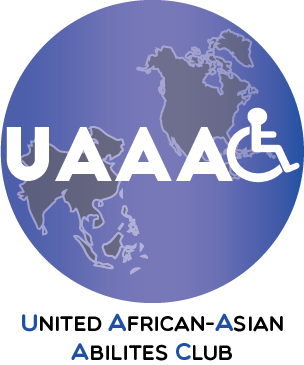(I'm teaching the Lesson 1 to Sharon Rosete.)
There are 650 million people with disabilities in the world. Most live in misery, want and poverty. Most with thinking power and over 18 years of age have a narrow view of how to have money.
For example, in the Western Nations people with disabilities think about how to obtain money from government programs. A smaller subset think about obtaining jobs from employers who do not want to hire people with disabilities. In third world countries people with disabilities think about begging or obtaining jobs. Worldwide, much thought is given to obtaining money, goods and services by charity for people with disabilities.
There is so much thought and imagination focused on charity, government funds and seeking jobs from unwilling employers, people with disabilities cannot imagine other ways of obtaining money - there imagination is disabled.
As Napoleon Hill aptly stated, imagination is a faculty of mind broaden and developed by use. Also, all human inventions and achievements were once conceived in the imagination. People with disabilities are only using 5% of their imagination by seeking jobs from unwilling employers or seeking help from charity or government sources. Due to poverty of imagination people with disabilities suffer from misery, want and failure.
Without imagination we, people with disabilities, are tempted by intolerance, cupidity, greed, jealousy, suspicion, revenge, egotism, conceit, receiving without working and spending more than what is earned. We fail to use the most powerful tool created by God and Nature - our ability to gather, organize and classify knowledge by thought to create our own economic power.
Due to disagreement and friction among disabled groups, we fail to have harmonious negotiations. We have no allegiance in perfect harmony to create businesses owned and operated by us - a disability economic private power mastermind.
We use the law of attraction to attract like people seeking jobs from unwilling employers, charity and government help. We need to attract like people that have a burning desire to create businesses we own and operate.
We need to blend our minds to create disability economic power.
We need great leaders that skillfully and artfully get us to create disability economic power without the use of fear or persuasion.
Fear controls us and chokes thinking and imagination. Fear is regulated by the limbic system which is called the mid brain. The mid brain warns us of fearful situations and we react to them by habit and not by thinking.
Our people are disabled by six basic fears:
1.
Poverty. People with disabilities fear poverty. This fear forces them to seek jobs from unwilling employers. This fear forces them to accept charity or to beg. This fear keeps them seeking government aid and chokes imagination and risk taking.
2.
Death. We fear death from our disability. This fear chokes our imagination.
3.
Ill Health. "I'm ill or disabled so I can't" attitude. This fear encourages charity and helplessness. This fear focuses on what we can't do and chokes the imagination of what we can do.
4.
Loss of love. We want to be loved or belong but society rejects us. We fear rejection.
5.
Old Age. This fear is the same as 2 and 3.
6.
Criticism. The fear of being criticized stops us from failing or succeeding. A person that does not fail can never succeed. We listen to others that criticize our imagination and we kill different ways of achieving economic powers.
If our fears do not destroy us lack of education will. I do not mean college education. Education means gaining knowledge to do your definite chief aim without violating the rights of others. Getting a job is not a definite chief aim unless you have a burning desire to get the job even without money for a time. Also, money is a need not a desire. So you cannot have a burning desire to only make money. For example, Steve Jobs gain the knowledge to make computers without a college degree because he had the burning desire to do it. He was educated.
The above is the application of the knowledge I acquired in Lesson 1 of The Law of Success by Napoleon Hill.
